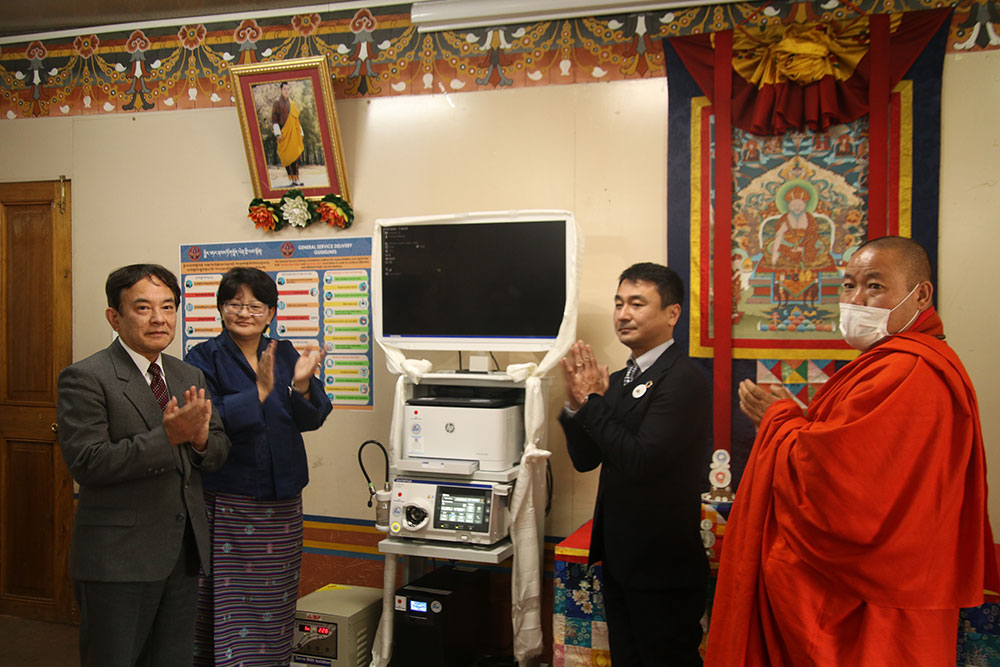Nima Wangdi
Oita-Khesar Gyalpo University of Medical Sciences of Bhutan (KGUMSB) gastric cancer collaborative project gifted a high-end gastroscope endoscope machine set to JDWNRH on March 27.
KGUMSB’s Director General, Dr Sithar Dorjee said that the machine is the most advanced in the market and not many hospitals in the world have it.
He said the machine will greatly enhance the capacity to detect early gastric cancer and provide treatment on time. It will also help prevent and reduce the mortality associated with gastric cancer in Bhutan.
“It is another milestone achievement that complements the ongoing national gastric cancer control flagship programme,” Dr Sithar said.
Professor Yoshio Yamaoka, Vice President of Oita University, during the machine handing-taking ceremony at the hospital said the gastroscope has a feature for enabling endoscopists to examine virtual histology of the stomach lining which will provide high accuracy in detecting early gastric cancer.
Japan International Cooperation Agency through SATREPS grant funded it. SATREPS stands for science technology research partnership for sustainable development.
SATREPS project aims to eradicate stomach cancer in Bhutan. The machine can also be connected to the hospital in Japan through internet and the doctors in Japan can see as Bhutanese doctors perform.
Yoshio Yamaka said the doctors of the two countries will have exchange programmes.
Faculty of postgraduate medicine’s dean, Dr Guru Prasad Dhakal said the project will enhance the laboratory capacity in which RCDC will develop in-house testing kits, not only for testing helicobacter pylori but also the antibiotics sensitivity. “In the clinical aspect, endoscopists in Bhutan will be trained in early gastric cancer and management.”
“All these activities are complementing the ongoing national early gastric cancer flagship programme,” he said.
Sowai Lyonpo said that gastric cancer and cervical cancer are the most common cancers. She said some 314 gastric cancers and 39 early gastric cancers were detected in the ongoing screening programme.
“Through this project, we will also look at the overall ecosystem of the project from screening to early detection to treatment to rehabilitation to coming up with our own test kits to detect resistance,” Lyonpo said.
Medical Superintendent of JDWNRH, Dr Tshokey said that it will add to the expertise of our endoscopists and benefit the people of Bhutan. “We’ve been working towards detecting early gastric cancers for a few years but the new machine will enhance our capacity.”
The press release from KGUMSB stated that SATREPS Project, which is for five years is worth approximately USD 3.3 million. It aims to enhance the endoscopy skills of Bhutanese doctors, establish a rapid diagnosis kit production facility for H.pylori at RCDC, conduct whole genome sequencing and the drug-resistant characteristics of H.pylori, and develop research capacity on gastric cancer, among others.
The Olympus make machine set costs about USD 80,000.


